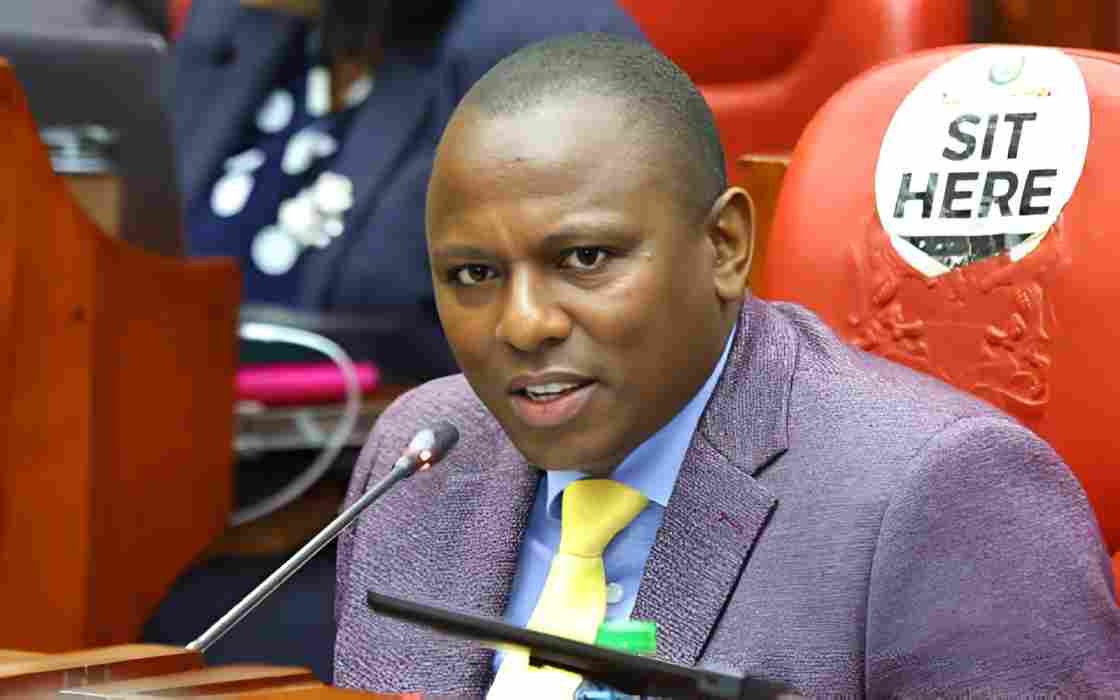MPs pass bill for monthly stipends to shield Kenyans from poverty and crises

The Bill was tabled by Leader of Majority Kimani Ichung’wah.
The National Assembly has given the green light to a new law that promises financial relief to thousands of Kenyans affected by poverty, disasters, and economic challenges.
The Social Protection Bill, 2025, which received wide backing from both sides of the House, introduces a direct monthly stipend for people who lose their income due to crises such as pandemics or natural disasters.
The Bill was tabled by Leader of Majority Kimani Ichung’wah, and proposes a shift from contribution-based support systems to a government-funded model aimed at vulnerable groups.
Unlike the previously considered Unemployment Insurance Fund, which relied on deductions from employees and employers, the new law guarantees assistance drawn from the national budget.
"This Bill’s principal object is to reduce poverty and vulnerability and improve the well-being of people by providing assistance, services, and programmes that build human capital and cushion people against risks and contingencies throughout their cycles," Ichung’wah explained.
According to the proposed law, a National Board for Social Protection will be established to manage the implementation of the programme.
The board will assess eligibility, disburse funds, maintain a social protection registry, and handle appeals from excluded individuals.
It will also be responsible for offering non-cash support such as psychosocial services, rehabilitation, respite care, feeding programmes, and home-based care.
The programme is set to operate jointly with county governments, with clearly outlined roles to ensure services reach those in need at the grassroots level.
The legislation comes in response to lessons from the Covid-19 pandemic, during which nearly two million Kenyans lost their jobs.
The new framework aims to support people during similar unexpected events and improve resilience in the face of economic or humanitarian shocks.
While lawmakers praised the Bill’s intentions, they flagged several issues that need attention.
Suna West MP Peter Masara questioned the value of the Sh2,000 monthly stipend, saying it has not been adjusted despite the rising cost of living.
"In Kenya today, the vulnerable in society are benefitting, but at the time the programme started, they were being given Sh2,000. For some time now, the dollar has been at Sh160, but these people are still being given Sh2,000," said Masara.
Endebess MP Robert Pukose welcomed the provision of a formal appeals process, which he said would correct injustices in the current system.
"You find that among those who are elderly, there’s somebody who is 70 who is getting the money and there’s somebody who is 75 who is not getting the money, and they have no way of appeal. This Bill creates an appeals mechanism. It also creates a board that will be disbursing those funds," Pukose said.
Concerns about corruption and harsh treatment of beneficiaries were raised by Samburu East MP Jackson Lekumontare. He urged the government to eliminate demeaning verification methods.
"There’s a lot of corruption even in this fund, where people are being told to give something so that you can get your money. And the government should have another way of identifying these people if the fingerprint fails, because people who have never taken alcohol are told to go and take alcohol so that their fingerprint can work," Lekumontare said.
North Imenti MP Rahim Dawood criticised the centralised method of distributing the funds, arguing that it disadvantages rural communities.
"There’s no transparency in the number of people who are getting this money. And we need to know how to devolve this process. They cannot be told that a whole constituency comes to one place to collect the money," Dawood said.
Nyatike MP Tom Odege pointed to irregularities in the registration of beneficiaries and suggested automatic listing for qualified individuals.
"If you are in your constituency today, you’ll find people who are over 70 and are not benefitting, and they are questioning why their neighbours are benefitting and they are not listed. If we come up with a very clear criterion where when you attain a certain age and you are vulnerable, you are automatically listed. It will bring equity and fairness," Odege said.
Kwanza MP Ferdinand Wanyonyi emphasised the need for strict oversight, warning that funds meant for the vulnerable often don’t reach the intended people.
"From my own observation, this money that has been given to cash transfers is part of corruption in this country. Money is not being transferred properly. That money sometimes never reaches the people it’s supposed to reach," said Wanyonyi.
The Bill maintains that it respects all constitutional rights and is not classified as a money Bill under Article 114 of the Constitution.
It also acknowledges that its implementation may require increased public spending and includes county governments in the delivery of social support services.
Currently, the national budget allocates Sh31.3 billion to social protection.
If signed into law, the new framework is expected to widen the safety net and bring relief to more Kenyans facing hardship.
